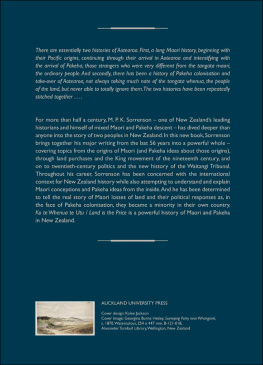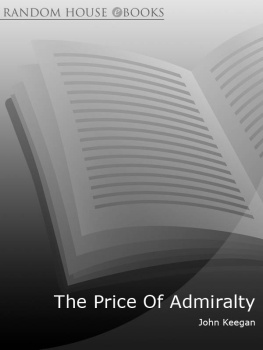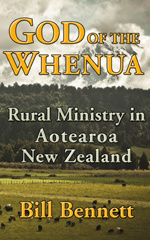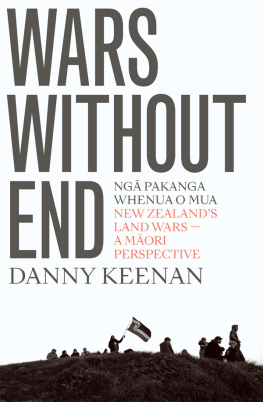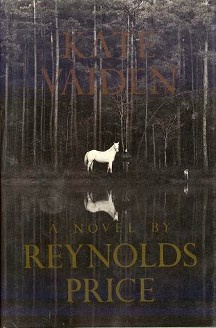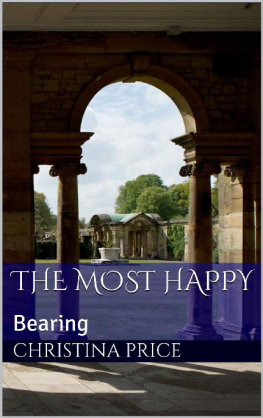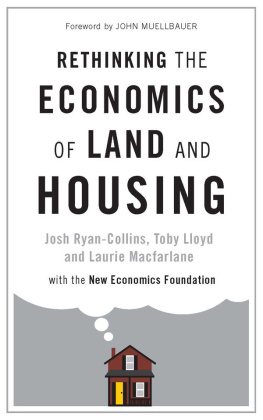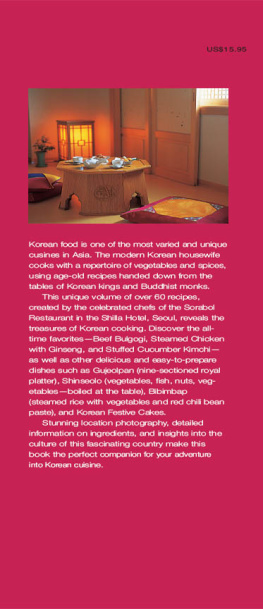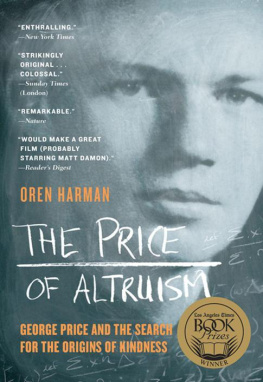M.P.K. Sorrenson - Ko Te Whenua Te Utu / Land is the Price
Here you can read online M.P.K. Sorrenson - Ko Te Whenua Te Utu / Land is the Price full text of the book (entire story) in english for free. Download pdf and epub, get meaning, cover and reviews about this ebook. year: 2014, publisher: Auckland University Press, genre: Politics. Description of the work, (preface) as well as reviews are available. Best literature library LitArk.com created for fans of good reading and offers a wide selection of genres:
Romance novel
Science fiction
Adventure
Detective
Science
History
Home and family
Prose
Art
Politics
Computer
Non-fiction
Religion
Business
Children
Humor
Choose a favorite category and find really read worthwhile books. Enjoy immersion in the world of imagination, feel the emotions of the characters or learn something new for yourself, make an fascinating discovery.
- Book:Ko Te Whenua Te Utu / Land is the Price
- Author:
- Publisher:Auckland University Press
- Genre:
- Year:2014
- Rating:5 / 5
- Favourites:Add to favourites
- Your mark:
- 100
- 1
- 2
- 3
- 4
- 5
Ko Te Whenua Te Utu / Land is the Price: summary, description and annotation
We offer to read an annotation, description, summary or preface (depends on what the author of the book "Ko Te Whenua Te Utu / Land is the Price" wrote himself). If you haven't found the necessary information about the book — write in the comments, we will try to find it.
Ko Te Whenua Te Utu / Land is the Price — read online for free the complete book (whole text) full work
Below is the text of the book, divided by pages. System saving the place of the last page read, allows you to conveniently read the book "Ko Te Whenua Te Utu / Land is the Price" online for free, without having to search again every time where you left off. Put a bookmark, and you can go to the page where you finished reading at any time.
Font size:
Interval:
Bookmark:

M. P. K. Sorrenson (Ngati Pukenga, Pakeha) is one of New Zealands most important historians. He began as a junior lecturer in the University of Auckland history department in 1958, and completed a DPhil at Oxford and further research in East Africa, before returning to Auckland in 1964. He taught there for the next 31 years. He was president of CARE in the 1970s, sat on the council of the New Zealand Historic Places Trust for a decade and was a leading member of the Waitangi Tribunal for 25 years. He is author or editor of numerous books on African and New Zealand history, including Maori Origins and Migrations: The Genesis of some Pakeha Myths and Legends (AUP/OUP, 1979) and the three-volume work Na To Hoa Aroha, From Your Dear Friend: The Correspondence between Sir Apirana Ngata and Sir Peter Buck, 19251950 (AUP, 1986, 1987, 1988).
I am grateful to my wife Judith, my sons Richard and Julian, and grandsons Peter and David for help with computing; to Sam Elworthy and Anna Hodge at Auckland University Press and Mike Wagg for their care in editing and formatting; and to the following journals and publishers for permission to reproduce the essays in this collection: The Journal of the Polynesian Society; The New Zealand Journal of History; The Journal of Imperial and Commonwealth History; The British Review of New Zealand Studies; Pauls Book Arcade; the Government Printer; Oxford University Press; and Otago University Press.
The essays in this collection have been published over a period of 56 years and most of them have long been out of print. That longevity might well suggest that many of the essays are no longer relevant. Yet, oddly enough, the first of the essays to be published, Land Purchase Methods and their Effect on Maori Population, 18651901, which was based on my 1955 Masters thesis, The Purchase of Maori Lands, 18651892, has been the most cited of all. In recent years it has been used to support numerous research reports and submissions for Waitangi Tribunal inquiries, often in my presence and to my embarrassment while I was sitting as a member on various Tribunal inquiry panels. If the other essays have received less notice, they provide a progression of my thoughts on various aspects of Maori history, more especially in relation to Maori losses of land and their political responses to those losses as, in the face of remorseless Pakeha colonisation of New Zealand, they became a minority in their own country. Indeed, the title of this collection, Ko te Whenua te Utu, uses one of the meanings of utu to signify that land was the price Maori had to pay for signing the Treaty of Waitangi, accepting British sovereignty and allowing European colonisation to proceed.
New Zealand race relations, and more particularly MaoriPakeha relations, have often been acclaimed (though not by me) as an object lesson to the rest of the world. One of my mentors and a former colleague, Sir Keith Sinclair, simply accepted that assumption before going on to explain why that was so.
The essays are not arranged in order of publication but mainly in so far as they fit into a chronology of Maori history, land and politics. Some, however, cover the whole of the period, while the last four, all of them inspired by Waitangi Tribunal associations, represent my contributions to various Treaty and Tribunal occasions. They are a small contribution to the Treaty industry which, to the annoyance of some historians, has captured too much attention in recent years. But I make no apology for my involvement. It has been the crowning climax of my life as a professional historian and brought me into contact with the lively minds and memories of numerous distinguished kaumatua and kuia, lawyers and fellow historians. Through Maori elders, their history has come alive and been relived in many a Tribunal hearing; reminding us that there are essentially two histories of Aotearoa. First, a long Maori history, beginning with their Pacific origins, continuing through their arrival in Aotearoa and intensifying with the arrival of Pakeha, those strangers who were very different from the tangata maori, the ordinary people. And secondly, there has been a history of Pakeha colonisation and takeover of Aotearoa, not always taking much note of the tangata whenua, the people of the land, but never able to totally ignore them. The two narratives have been repeatedly stitched together in short and long histories of New Zealand.
The question of Maori history has at times been the subject of controversy since in recent years some Maori have said that only Maori can write it. That notion is not new: as seen in my Polynesian Corpuscles essay, Ngata and Buck held a similar view of their contemporary Pakeha scholars. As Ngata put it, chaps like [Felix] Keesing & others cannot get very far in. And, in discussing the work of another anthropologist, Raymond Firth, Buck said, We have got to... [make] the most of any natural assets we may have through our blood. In discussing Firths 1929 publication, The Primitive Economics of the New Zealand Maori, Ngata said that he had failed to penetrate the psychological strata of Maori life and thought.
My own position has been somewhat ambiguous. Sometimes, because of my Ngati Pukenga ancestry, I am included in the fold; at other times, because of my larger Pakeha ancestry, I am excluded. The whole argument has been rather silly, especially when we remember that the most outstanding Maori history written in recent years has been by my late colleague Judith Binney who was not Maori at all, except by adoption. But I also get some wry pleasure from the fact that my Maori ancestry comes from a marriage between Katerina Te Atirau , How to Civilise Savages, the missionaries were always telling Maori that they were one of the lost tribes of Israel; tribes that were united, in my case, through Katerina and David (and through a good many other MaoriJewish marriages). In fact my earliest essay in what could be described as Maori history (though the term was hardly used at the time) the study of the Maori King movement (or Kingitanga), with its particular emphasis on Maori conceptions of their kingship was published as long ago as 1963. Maori history has come of age recently with the formation of a Maori historians network, Te Pouhere Korero, which has published a journal with that title since 2006.
My involvement in the long-vexed question of Maori origins is represented by the first essay in the collection, The Whence of the Maori. This was a preliminary review of that question which I followed up in 1978 in my three Macmillan Brown lectures, published the following year as Maori Origins and Migrations. It has been my most successful book and has been reprinted several times, which suggests that there is something to be said for brevity. As I explain in my Epilogue, the quest for Maori origins has been continued vigorously by others since the publication of my book.
The arrangement of the essays to fit into a chronology of Maori history, rather than by date of publication, might imply that I have been historio-graphically calcified over my long career. I would plead that that is not quite true; but rather that I have usually ridden the waves of fashion and perhaps on one occasion been slightly ahead. My Maori Origins and Migrations was recognised by Simon During, in the Australian literary journal Meanjin, for demystifying the construction of Maori mythology, a mythology that had been constructed by Pakeha scholars. That demystifying was soon to be known as Deconstruction though I saw no need to become a convert since I regarded it as a new name for what historians always try to do examine what intellectual ingredients go into the making of texts.
Font size:
Interval:
Bookmark:
Similar books «Ko Te Whenua Te Utu / Land is the Price»
Look at similar books to Ko Te Whenua Te Utu / Land is the Price. We have selected literature similar in name and meaning in the hope of providing readers with more options to find new, interesting, not yet read works.
Discussion, reviews of the book Ko Te Whenua Te Utu / Land is the Price and just readers' own opinions. Leave your comments, write what you think about the work, its meaning or the main characters. Specify what exactly you liked and what you didn't like, and why you think so.

